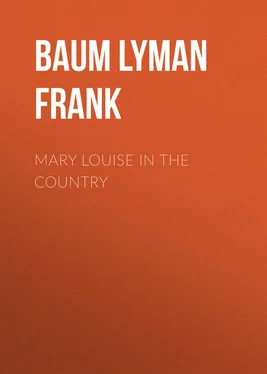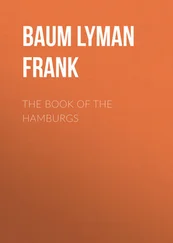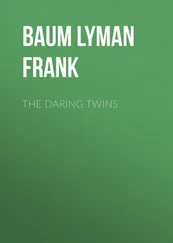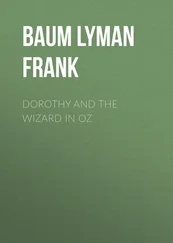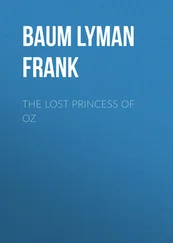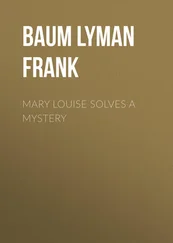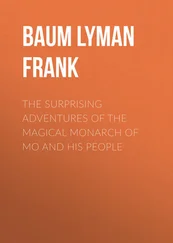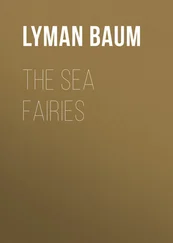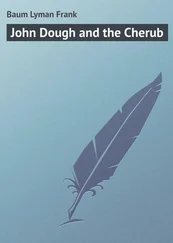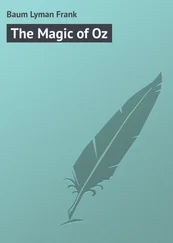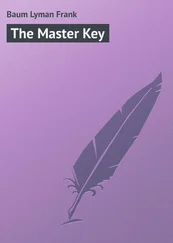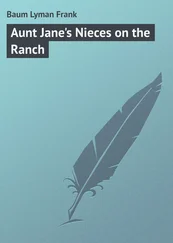Lyman Baum - Mary Louise in the Country
Здесь есть возможность читать онлайн «Lyman Baum - Mary Louise in the Country» — ознакомительный отрывок электронной книги совершенно бесплатно, а после прочтения отрывка купить полную версию. В некоторых случаях можно слушать аудио, скачать через торрент в формате fb2 и присутствует краткое содержание. Жанр: foreign_antique, foreign_prose, на английском языке. Описание произведения, (предисловие) а так же отзывы посетителей доступны на портале библиотеки ЛибКат.
- Название:Mary Louise in the Country
- Автор:
- Жанр:
- Год:неизвестен
- ISBN:нет данных
- Рейтинг книги:3 / 5. Голосов: 1
-
Избранное:Добавить в избранное
- Отзывы:
-
Ваша оценка:
- 60
- 1
- 2
- 3
- 4
- 5
Mary Louise in the Country: краткое содержание, описание и аннотация
Предлагаем к чтению аннотацию, описание, краткое содержание или предисловие (зависит от того, что написал сам автор книги «Mary Louise in the Country»). Если вы не нашли необходимую информацию о книге — напишите в комментариях, мы постараемся отыскать её.
Mary Louise in the Country — читать онлайн ознакомительный отрывок
Ниже представлен текст книги, разбитый по страницам. Система сохранения места последней прочитанной страницы, позволяет с удобством читать онлайн бесплатно книгу «Mary Louise in the Country», без необходимости каждый раз заново искать на чём Вы остановились. Поставьте закладку, и сможете в любой момент перейти на страницу, на которой закончили чтение.
Интервал:
Закладка:
L. Frank Baum
Mary Louise in the Country
CHAPTER I
THE ARRIVAL
"Is this the station, Gran'pa Jim?" inquired a young girl, as the train began to slow up.
"I think so, Mary Louise," replied the handsome old gentleman addressed.
"It does look very promising, does it?" she continued, glancing eagerly out of the window.
"The station? No, my dear; but the station isn't Cragg's Crossing, you know; it is merely the nearest railway point to our new home."
The conductor opened their drawing-room door.
"The next stop is Chargrove, Colonel," he said.
"Thank you."
The porter came for their hand baggage and a moment later the long train stopped and the vestibule steps were let down.
If you will refer to the time-table of the D. R. & G. Railway you will find that the station of Chargrove is marked with a character dagger (), meaning that trains stop there only to let off passengers or, when properly signaled, to let them on. Mary Louise, during the journey, had noted this fact with misgivings that were by no means relieved when she stepped from the sumptuous train and found before her merely a shed-like structure, open on all sides, that served as station-house.
Colonel Hathaway and his granddaughter stood silently upon the platform of this shed, their luggage beside them, and watched their trunks tumbled out of the baggage car ahead and the train start, gather speed, and go rumbling on its way. Then the girl looked around her to discover that the primitive station was really the only barren spot in the landscape.
For this was no Western prairie country, but one of the oldest settled and most prosperous sections of a great state that had been one of the original thirteen to be represented by a star on our national banner. Chargrove might not be much of a railway station, as it was only eleven miles from a big city, but the country around it was exceedingly beautiful. Great oaks and maples stood here and there, some in groups and some in stately solitude; the land was well fenced and carefully cultivated; roads – smooth or rutty – led in every direction; flocks and herds were abundant; half hidden by hills or splendid groves peeped the roofs of comfortable farmhouses that evidenced the general prosperity of the community.
"Uncle Eben is late, isn't he, Gran'pa Jim?" asked the girl, as her eyes wandered over the pretty, peaceful scene.
Colonel Hathaway consulted his watch.
"Our train was exactly on time," he remarked, "which is more than can be said for old Eben. But I think, Mary Louise, I now see an automobile coming along the road. If I am right, we have not long to wait."
He proved to be right, for presently a small touring car came bumping across the tracks and halted at the end of the platform on which they stood. It was driven by an old colored man whose hair was snow white but who sprang from his seat with the agility of a boy when Mary Louise rushed forward with words of greeting.
"My, Uncle Ebe, but it's good to see you again!" she exclaimed, taking both his dusky hands in her own and shaking them cordially. "How is Aunt Polly, and how is your 'rheum'tics'?"
"Rheum'tics done gone foh good, Ma'y Weeze," he said, his round face all smiles. "Dis shuah am one prosterous country foh health. Nobuddy sick but de invahlids, an' dey jus' 'magines dey's sick, dat's all."
"Glad to see you, Uncle," said the Colonel. "A little late, eh? – as usual. But perhaps you had a tire change."
"No, seh, Kun'l, no tire change. I was jus' tryin' to hurry 'long dat lazy Joe Brennan, who's done comin' foh de trunks. Niggehs is slow, Kun'l, dey ain't no argyment 'bout dat, but when a white man's a reg'leh loaf eh, seh, dey ain' no niggeh kin keep behind him."
"Joe Brennan is coming, then?"
"Dat's right, Kun'l; he's comin'. Done start befoh daylight, in de lumbeh-wagin. But when I done ketch up wi' dat Joe – a mile 'n' a half away – he won't lis'n to no reason. So I dodged on ahead to tell you-uns dat Joe's on de way."
"How far is it from here to Cragg's Crossing, then?" inquired Mary Louise.
"They call it ten miles," replied her grandfather, "but I imagine it's nearer twelve."
"And this is the nearest railway station?"
"Yes, the nearest. But usually the Crossing folks who own motor cars drive to the city to take the trains. We alighted here because in our own case it was more convenient and pleasant than running into the city and out again, and it will save us time."
"We be home in half'n hour, mos' likely," added Uncle Eben, as he placed the suit cases and satchels in the car. Colonel Hathaway and Mary Louise followed and took their seats.
"Is it safe to leave our trunks here?" asked the girl.
"Undoubtedly," replied her grandfather. "Joe Brennan will doubtless arrive before long and, really, there is no person around to steal them."
"I've an idea I shall like this part of the country," said Mary Louise musingly, as they drove away.
"I am confident you will, my dear."
"Is Cragg's Crossing as beautiful as this?"
"I think it more beautiful."
"And how did you happen to find it, Gran'pa Jim? It seems as isolated as can be."
"A friend and I were taking a motor trip and lost our way. A farmer told us that if we went to Cragg's Crossing we would find a good road to our destination. We went there, following the man's directions, and encountered beastly roads but found a perfect gem of a tiny, antiquated town which seems to have been forgotten or overlooked by map-makers, automobile guides and tourists. My friend had difficulty in getting me away from the town, I was so charmed with it. Before I left I had discovered, by dint of patient inquiry, a furnished house to let, and you know, of course, that I promptly secured the place for the summer. That's the whole story, Mary Louise."
"It is interesting," she remarked. "As a result of your famous discovery you sent down Uncle Eben and Aunt Polly, with our car and a lot of truck you thought we might need, and now – when all is ready – you and I have come to take possession."
"Rather neatly arranged, I think," declared the Colonel, with satisfaction.
"Do you know anything about the history of the place, Gran'pa, or of the people who live in your tiny, forgotten town?"
"Nothing whatever. I imagine there are folks Cragg's Crossing who have never been a dozen miles away from it since they were born. The village boasts a 'hotel' – the funniest little inn you can imagine – where we had an excellent home-cooked meal; and there is one store and a blacksmith's shop, one church and one schoolhouse. These, with half a dozen ancient and curiously assorted residences, constitute the shy and retiring town of Cragg's Crossing. Ah, think we have found Joe Brennan."
Uncle Eben drew up beside a rickety wagon drawn by two sorry nags who just now were engaged in cropping grass from the roadside. On the seat half reclined a young man who was industriously eating an apple. He wore a blue checked shirt open at the throat, overalls, suspenders and a straw hat that had weathered many seasons of sunshine and rain. His feet were encased in heavy boots and his bronzed face betokened an out-of-door life. There are a million countrymen in the United States just like Joe Brennan in outward appearance.
Joe did not stop munching; he merely stared as the automobile stopped beside him.
"Say, you Joe!" shouted Uncle Eben indignatly, "wha' foh yo' done sett'n' heah?"
"Rest'n'," said Joe Brennan, taking another bite from his apple.
"Ain't yo' gwine git dem trunks home to-day?" demanded the old darkey.
Joe seemed to consider this question carefully before he ventured to commit himself. Then he looked at Colonel Hathaway and said:
"What I want t' know, Boss, is whether I'm hired by the hour, er by the day?"
Читать дальшеИнтервал:
Закладка:
Похожие книги на «Mary Louise in the Country»
Представляем Вашему вниманию похожие книги на «Mary Louise in the Country» списком для выбора. Мы отобрали схожую по названию и смыслу литературу в надежде предоставить читателям больше вариантов отыскать новые, интересные, ещё непрочитанные произведения.
Обсуждение, отзывы о книге «Mary Louise in the Country» и просто собственные мнения читателей. Оставьте ваши комментарии, напишите, что Вы думаете о произведении, его смысле или главных героях. Укажите что конкретно понравилось, а что нет, и почему Вы так считаете.
